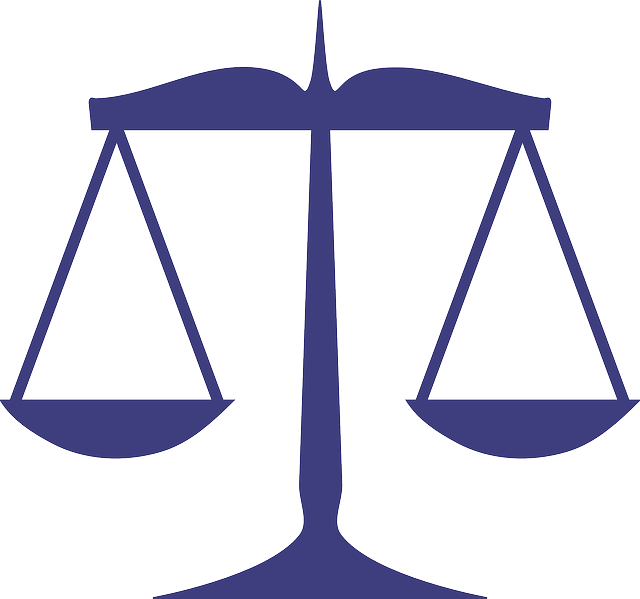Fraudulent financial practices like accounting fraud, Ponzi schemes, and insider trading pose significant threats to economies. Understanding these behaviors is crucial for legal professionals navigating court processes where the Importance of Due Process in Court is paramount. It safeguards justice, prevents wrongful accusations, maintains public trust, and deters potential fraud by ensuring fairness through structured procedures. Detecting red flags like unusual transactions requires a thorough understanding of due process to construct robust defense strategies, upholding market integrity and investor protection.
Fraudulent financial practices pose a significant threat to individuals, businesses, and economies worldwide. This article delves into the intricate world of financial fraud, exploring its various manifestations. We discuss the crucial role of due process in legal proceedings, highlighting its importance in ensuring justice and deterring potential perpetrators. Understanding red flags and early warning signs is key to protecting individuals and mitigating economic impact. By examining these aspects, we aim to emphasize the comprehensive approach needed to combat fraudulent activities.
- Understanding Fraudulent Financial Practices
- Role of Due Process in Legal Proceedings
- Protecting Individuals: Rights and Responsibilities
- Detecting Red Flags: Early Warning Signs
- Impact on Economy: Prevention and Penalties
Understanding Fraudulent Financial Practices
Fraudulent financial practices are malicious actions designed to manipulate financial systems for personal gain. These practices can range from accounting fraud, where false entries are made to misrepresent financial statements, to more complex schemes like Ponzi schemes and insider trading. Understanding these fraudulent behaviors is crucial for both legal professionals and the general public, especially when navigating court processes. The Importance of Due Process in Court cannot be overstated; it ensures that justice is served and protects against wrongful accusations.
In cases involving corporate and individual clients, a thorough understanding of financial transactions is vital. An unprecedented track record of successful fraud prosecutions highlights the need for meticulous investigation and a robust legal framework. For his clients, this means providing comprehensive defense strategies, ensuring every aspect of their financial history is carefully examined to separate fact from fiction.
Role of Due Process in Legal Proceedings
The role of due process in legal proceedings is paramount, especially when addressing fraudulent financial practices. It serves as a cornerstone in ensuring fairness and justice for all parties involved. Due process dictates a structured and transparent approach, where individuals or entities accused of wrongdoing are granted specific rights and protections. This includes the right to be informed of allegations, to gather and present evidence, and to confront witnesses against them, among other fundamental principles. Adhering to these procedures is crucial in achieving extraordinary results—not just within the respective business but also in maintaining a trustworthy financial landscape.
By upholding due process, legal systems aim to avoid indictment based solely on hearsay or arbitrary decisions. This meticulous navigation through procedural safeguards plays a vital role in preventing miscarriages of justice and safeguarding the reputation of those accused. It encourages a thorough investigation, allowing all facets of a case to be explored, thereby fostering confidence in the integrity of financial regulations and practices.
Protecting Individuals: Rights and Responsibilities
In the context of fraudulent financial practices, protecting individuals is paramount. Every person involved in financial transactions has rights and responsibilities that must be upheld to ensure fairness and justice. One of the most crucial aspects of this protection is the importance of due process in court. A robust legal framework, including a thorough understanding of general criminal defense strategies, enables victims and accused alike to present their cases effectively throughout all stages of the investigative and enforcement process. This ensures that every party has a fair chance at winning challenging defense verdicts, ultimately fostering trust in the justice system.
By prioritizing due process, individuals are safeguarded against arbitrary decisions and unfair treatment. It empowers them to exercise their rights, such as the ability to confront accusers, present evidence, and have legal representation. This balance between protecting the innocent and holding perpetrators accountable is vital for maintaining a just society. It also encourages financial institutions and businesses to operate with transparency and integrity, deterring potential fraudulent activities in the long run.
Detecting Red Flags: Early Warning Signs
Detecting red flags is crucial in identifying fraudulent financial practices at an early stage. Investors and individuals must remain vigilant to avoid becoming victims. Common signs include unusual transactions, sudden changes in financial behavior, or secretive accounting practices. If a business or individual exhibits these warning signs, it warrants further investigation and due process in court.
Understanding the importance of due process is essential when navigating potential fraud cases. A thorough examination of records and evidence can help build a robust defense strategy. Through a general criminal defense approach, legal professionals can ensure that all aspects are considered, potentially leading to the complete dismissal of all charges if the client’s innocence is proven.
Impact on Economy: Prevention and Penalties
Fraudulent financial practices can have a devastating impact on economies, leading to market instability and eroding public trust. When individuals or entities engage in fraud, it disrupts the integrity of financial systems, resulting in significant losses for investors, businesses, and even governments. These high-stakes cases not only affect the parties involved but also ripple through the broader economy, creating a profound impact on credit availability, investment confidence, and overall economic growth.
Prevention and penalties are crucial elements in combating fraudulent activities. Robust due process in court plays an essential role in this regard. By ensuring fair and transparent trials, the legal system can deter potential offenders, as the consequences of getting caught are severe. Achieving extraordinary results for his clients doesn’t just involve winning cases; it also means upholding the integrity of financial markets, protecting investors, and sending a strong message that fraud will not be tolerated.
Fraudulent financial practices pose a significant threat to individuals and the economy, underscoring the importance of understanding, detecting, and preventing these activities. As discussed, early detection through recognizing red flags is crucial, while robust legal proceedings, including the role of due process in court, play a vital part in penalizing offenders and safeguarding investors. Protecting individuals’ rights and responsibilities is equally essential to fostering trust in financial systems. By implementing comprehensive measures across all sectors, we can mitigate the impact of fraud on the economy and ensure a more secure future for everyone.






